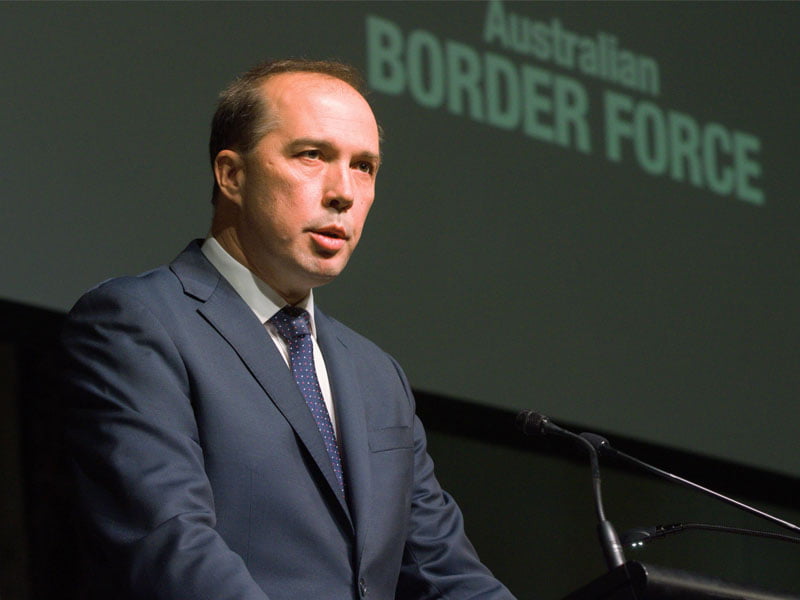A motion calling on government to support strong encryption and resist any attempts to undermine this process has been passed by the Senate.
Moved by the Greens and supported by Labor and the crossbench, the motion signals that the Federal government may struggle to find the necessary Senate support for its upcoming legislation, which would force tech companies to work with authorities to decrypt communications.
Greens digital rights spokesperson Jordon Steele-John put forward the motion that called on the Senate to note the importance of strong digital encryption, its role in preventing identity theft and supporting whistle-blowers, and the government’s own use of it through services like Medicare and Centrelink.

It also called for government to “support the continued development and use of strong encryption technologies”, resist “any push from other governments to weaken encryption on personal devices” and to work with law enforcement to develop a way to obtain information through “warrants and targeted surveillance” instead of forcing decryption.
Labor Senators voted against the same motion in 2016 when it was moved by former Greens senator Scott Ludlam, but the Party has had a change of heart.
Senator Steele-John said the motion was particularly important in light of the recent Facebook and Cambridge Analytica data harvesting revelations and an increasing focus on data security and privacy.
“Encryption technology is used by millions of people every day to manage financial transactions, to protect against identity theft and to keep their medical and other personal information safe, and developers of technology should not be bullied by governments into making those protections weaker,” Senator Steele-John said.
“In the wake of these data scandals, we should be strengthening our lacklustre privacy laws and reassuring Australians that their data and their identities will remain secure.”
Assistant minister to the Prime Minister James McGrath spoke against the motion, reaffirming government’s commitment to force tech companies to decrypt communications.
“The Australian government supports the use of strong encryption, which underpins the security of sensitive government, commercial and personal information, ,” Senator McGrath said.
“However, the government is concerned about the use of encrypted communications and storage platforms by terrorist organisations, organised crime groups, child exploitation networks and others involved in serious criminal activity,” he said.
“Addressing this challenge requires a multifaceted approach, including closer cooperation between industry and agencies – where it is reasonable and proportionate – and ensuring agencies have alternative powers and capabilities.”
But Senator Steele-John said the federal government cannot support encryption while also pledging to force tech companies to undermine their own encryption.
“I’m not buying Senator McGrath’s statement that the Turnbull government supports strong encryption technologies, given they’ve acknowledged they are actively pursuing decryption pathways, however I am buoyed by the support of Labor and the crossbench,” he said.
The Senate’s support for the motion means government would struggle to find the necessary support for its upcoming legislation that would force tech companies to work with law enforcement to decrypt certain communications.
Any bills claiming to be in the interest of national security tend to easily pass through Parliament with support from Labor. Despite it supporting the encryption motion, it is still unclear if the Opposition would vote against the government’s upcoming legislation.
“We are hopeful that the government’s decryption legislation will not pass the Senate, however the Labor Party have been vague about their position and have previously fallen into line with the government on all issues relating to national security at the expense of human rights and civil liberties,” Senator Steele-John said.
Home Affairs Minister Peter Dutton recommitted the government to this legislation last month, with the bill now being transitioned from the Attorney-General’s department to his own.
Mr Dutton and other government figures have continually denied that the legislation is looking for tech companies to create “back door” access to encrypted technologies, but have not be able to detail how the process would actually work.
Home Affairs secretary Michael Pezzullo said the argument that the government is asking for a backdoor mechanism is a “cartoon-like assumption”.
“The specifics of any scheme that may or may not be legislated in due course would have regard to those societal balances. You assume that a back door has to be created,” Mr Pezzullo said during a recent Senate Estimates hearing.
“The challenge for governments and parliaments all around the world is how to ensure that encryption used for legitimate societal purposes are not misused, in the same way the internet is misused through the dark web – that encryption is available to those who use it for legitimate purposes and not otherwise,” he said.
Do you know more? Contact James Riley via Email.

